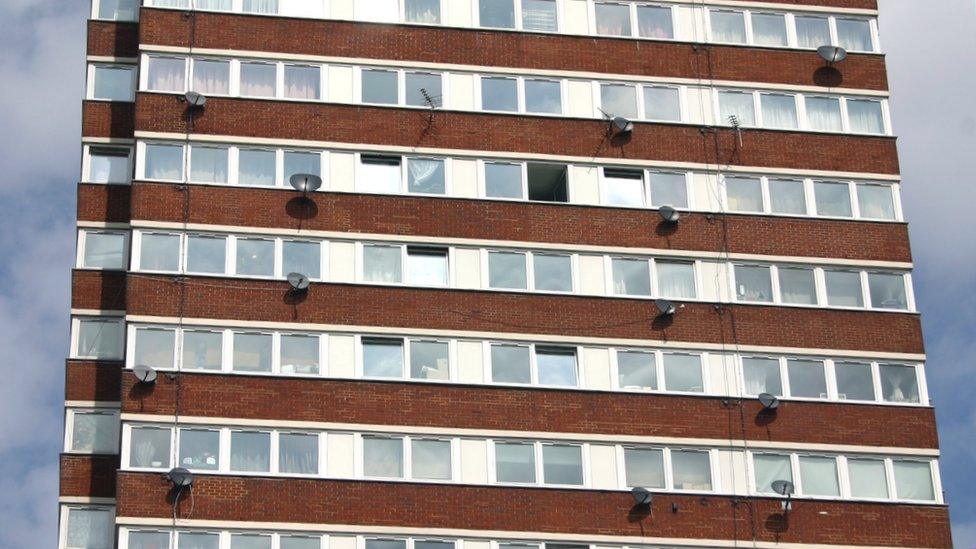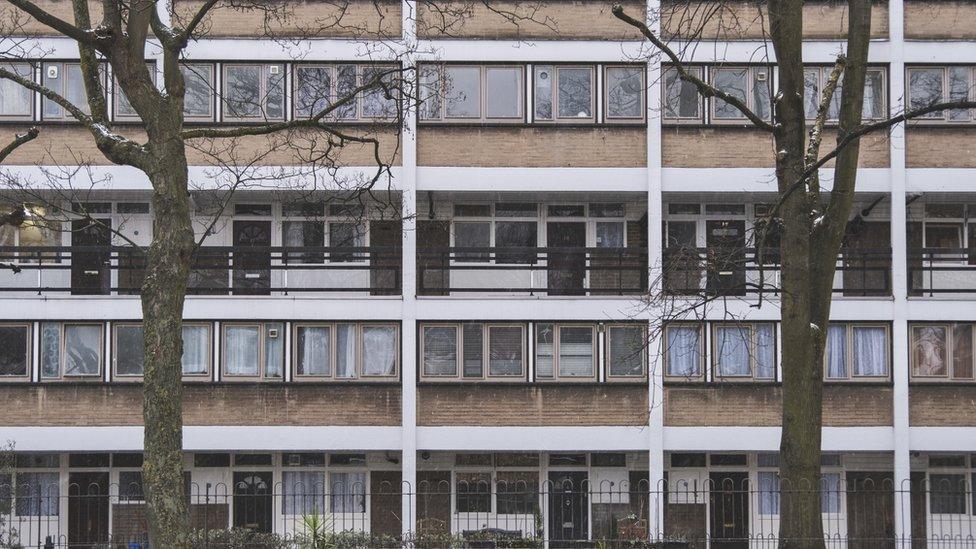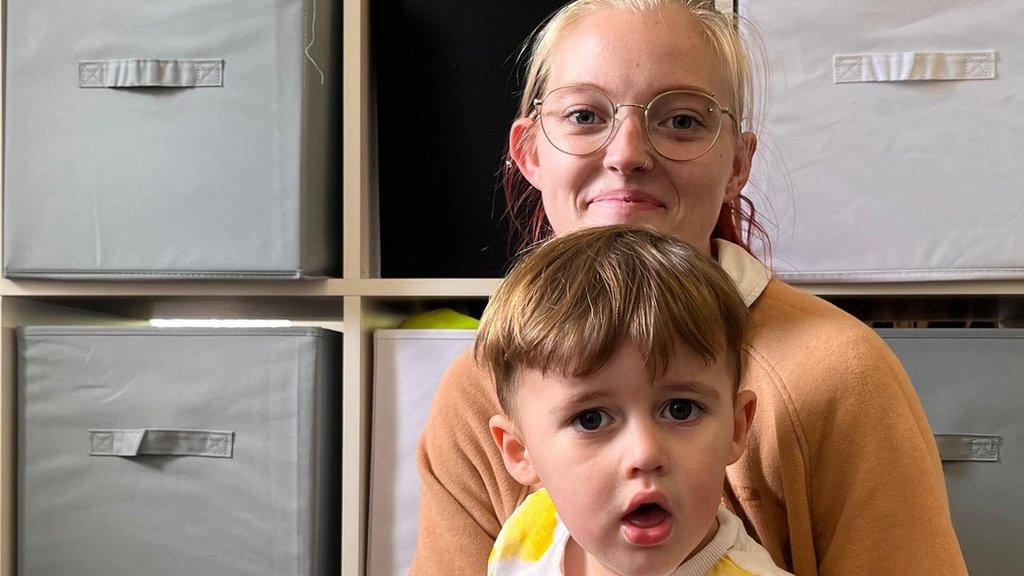Record social housing complaints probed by ombudsman
- Published

Housing Secretary Michael Gove said the findings "must be a wake-up call for failing social housing landlords"
Serious failures or delays by social housing landlords have more than quadrupled in the past year, according to the Housing Ombudsman Service.
Among a record high 5,109 escalated complaints, "severe maladministration" cases rose from 31 to 131.
These occur where there are excessive delays in taking action, or no consideration of tenants' vulnerabilities.
Ombudsman Richard Blakeway called the figures a "sobering overview".
Social housing tenants rent their homes from a housing association or council, who act as the landlord.
Property condition was the leading cause of complaints, accounting for 37%, with complaints handling coming second.
The significant rise in complaints is likely due to various factors, including poor property conditions, media attention, and the inquest into the death of Awaab Ishak, the ombudsman said.
Two-year-old Awaab died in December 2020 from a respiratory condition caused by prolonged exposure to mould in his home.
His death caused an outcry and saw the passing of Awaab's Law as part of the Social Housing Act, which requires landlords to fix reported hazards in social housing in a "timely fashion" or rehouse tenants in safe accommodation.

Awaab Ishak's father had reported the mould several times to Rochdale Boroughwide Housing
Failings higher in local authorities
Maladministration is a formal decision by the ombudsman that a landlord has failed to do something, has done something it should not have or, in the ombudsman's opinion, has delayed unreasonably.
The maladministration rate for local authorities was higher than housing associations, at 62% compared with 50%.
The ombudsman said local authorities end up with more maladministration findings as they have "less resources to offer reasonable redress".
London had the highest maladministration rate in the country, followed by the South East, the East of England, Midlands, North West, and the North East and Yorkshire.

The ombudsman's office has again written to chief executives of social landlords with a maladministration rate over 50% "to bring urgent attention to the figures"
Disabled residents 'falling between the gaps'
Mr Blakeway said: "Our Annual Complaints Review provides a unique and sobering overview into social housing complaints in this country."
While describing the overall picture as one of "poor practice", he acknowledged the "increased pressures we know that social landlords are facing with a combined housing and cost-of-living crisis".
But he said the data showed a "fundamental gap between some of the services landlords deliver and the reasonable expectations of their residents".
"Too often residents with disabilities or mental health needs are falling between those gaps," he added.
"Too often the basics are not being done properly, with straightforward communication or record keeping being missed, leading to problems becoming more severe. This is leading to residents being treated unfairly and experiencing financial detriment or losing the enjoyment of their home."
Darren Rodwell, housing spokesperson for the Local Government Association, which represents councils, said they are working hard to deliver good outcomes for tenants "despite significant financial constraints".
Housing Secretary Michael Gove said he wanted all tenants to feel empowered to stand up to bad landlords and go to the Ombudsman when issues remain unresolved.
He said the Social Housing Regulation Act is "driving up standards across the industry", and that the government has introduced Awaab's Law.
"Let me be clear to failing social landlords, we will not hesitate to take robust action if you continue to let down your tenants," he said.
Related topics
- Published10 October 2023

- Published19 August 2023
